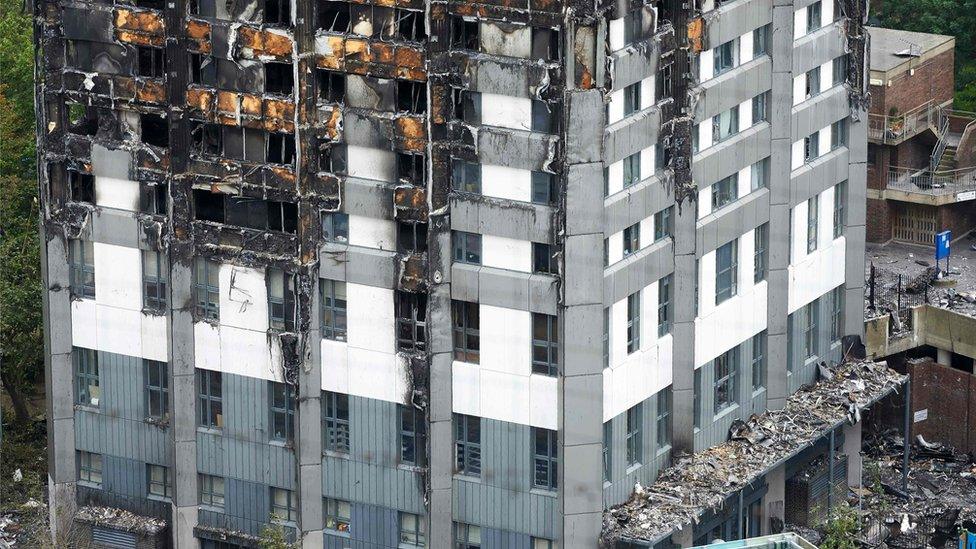Grenfell Tower fire response 'badly flawed' report says
- Published
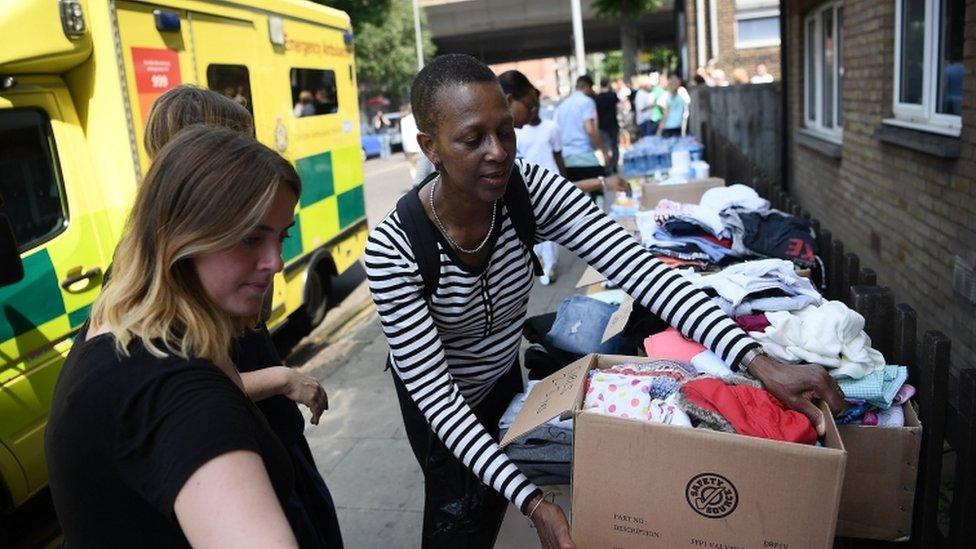
Voluntary organisations filled the void left by a lack of official direction following the fire, the report found
Volunteers were left to help Grenfell Tower residents amid a "badly flawed" council response to the disaster, a report has found.
Those without shelter turned to aid groups in the wake of the blaze that killed 72 people on 14 June 2017, the review by Muslim Aid said.
It said charities "on the front line" filled the gap created by Kensington and Chelsea Council's "slow response".
The authority, which was criticised for "weak leadership", declined to comment.
It said the ongoing public inquiry prevented it from doing so.
What did the report say?
Muslim Aid's review found those seeking refuge and information about their relatives after the blaze faced "limited co-ordination".
By the next day, no council helpline had been set up so several charities established their own to fill in the gap, it said.
"Weak leadership" of the initial council response compounded the consequences of the disaster, the report said.
The authority was "slow to provide direction, co-ordination and information and to address multiple pressing needs," the report said.
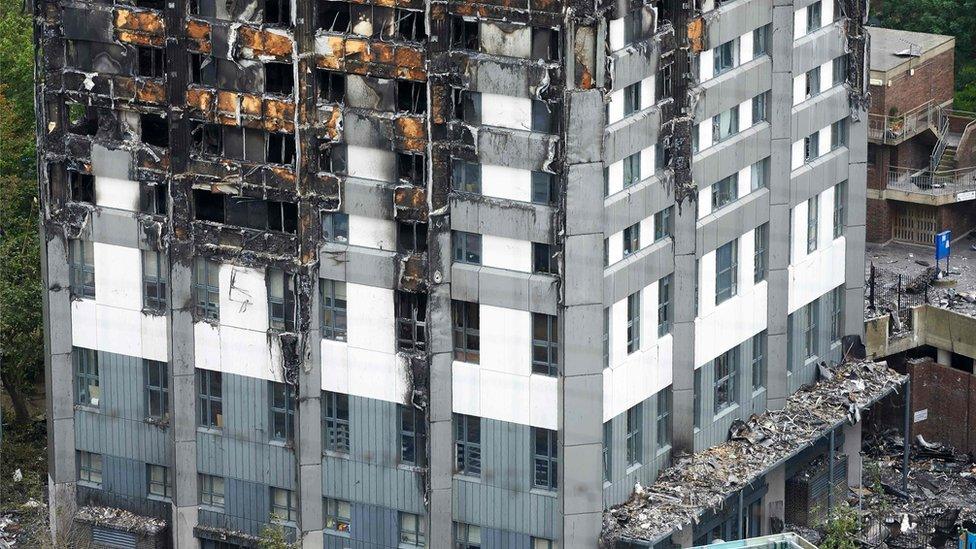
The fire ripped through the west London tower block on 14 June last year
It warned the tragedy could play out again "at a time when the frequency of disasters in the UK is likely to increase due to climate change, vulnerability to terror attacks and the inherent risks of life in crowded, unequal cities".
Muslim Aid CEO Jehangir Malik said he would have "expected this chaos in a developing country" with poor infrastructure.
"I honestly thought we had better disaster preparedness and response systems here in the UK," he said.
The report also recognised the voluntary sector "came up short" in certain areas, "with some systems, structures and approaches not fit for purpose".
Valid criticism?
Peter Herbert, the founder of BMELawyers4Grenfell, told the Today programme the council was "ill equipped".
"There's a race dynamic to this," he added.
"These were not only people who lived in a social housing in a tower block and so on the margins of society in London, but also they were a large proportion for minority and diverse communities."
However, author Andrew O'Hagan who has been investigating what happened, told the BBC that criticism of the council leadership "didn't stand up to the evidence".
"The council actually responded as well as they could under these incredibly difficult circumstances," Mr O'Hagan said.
"People are away with the fairies if they think people who work for the council hate the poor."
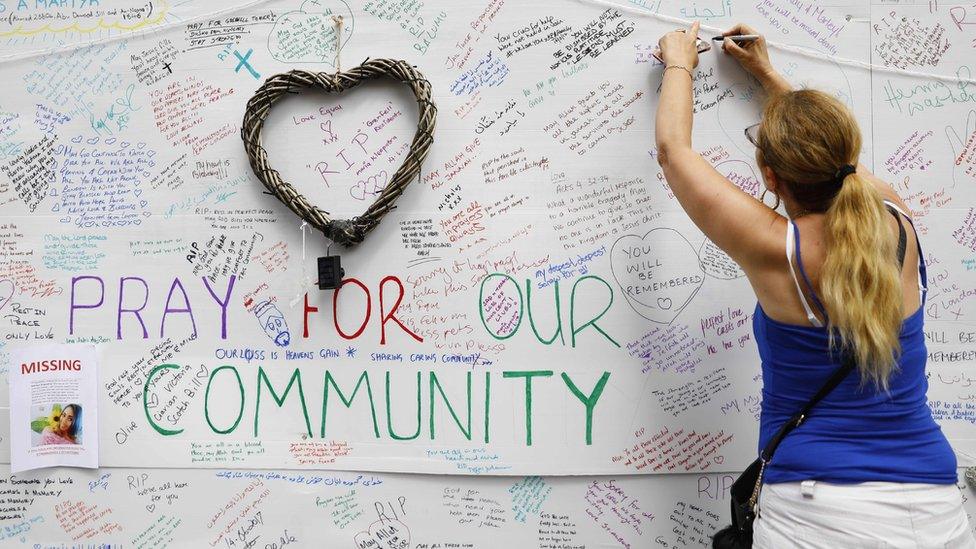
More than 200 firefighters and 40 fire engines responded to the fire at the 24-storey block in North Kensington
What did the council say?
In response to the report from Muslim Aid, the council said it did not think it appropriate to comment further as it was a matter for the current public inquiry.
However, the council confirmed it was to replace doors in social housing across the borough after failed safety tests.
Grenfell Tower's doors failed to withstand fire for the required 30 minutes, according to the council.
The authority estimates it will need to replace about 4,000 front doors at a cost of about £3.5m under orders from Secretary of State James Brokenshire.
He has said "all Manse doors across the country must be replaced, but stated that 'the risk to public safety remains low'", the council said in a statement.
The victims
Marcio and Andreia Gomes tell the story of how they managed to escape the fire
The Grenfell Inquiry has been hearing from survivors and relatives of those who died.
Marcio Gomes, whose son was stillborn after his parents fled the blaze, said losing his child "felt like our hearts had broken".
"He was going to be my superstar," he said.
Hamid Ali Jafari lost his father Ali Yawar Jafari, 82, in the fire. Speaking at the inquiry, he said he now asks friends "to pray that I die soon to join my father" in heaven.
The report follows a BBC investigation that found a series of failings hampered the efforts of firefighters.
- Published16 November 2017
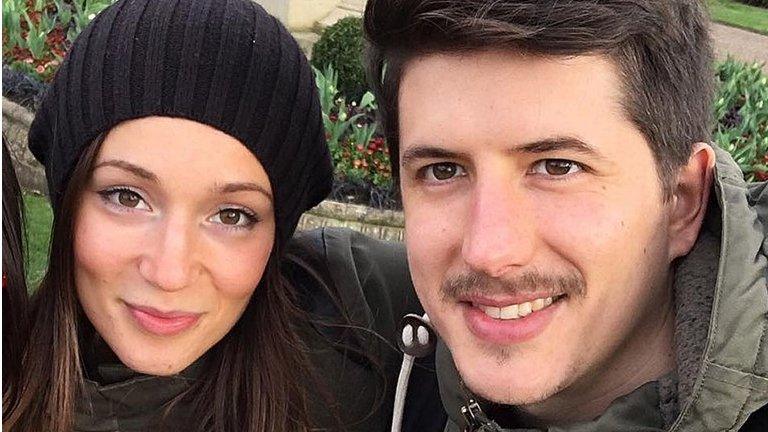
- Published30 May 2018
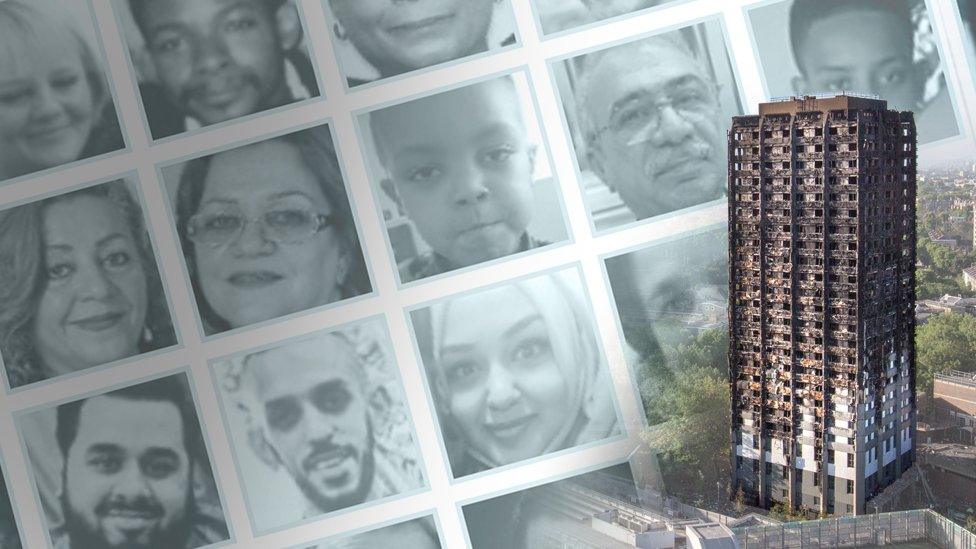
- Published21 May 2018
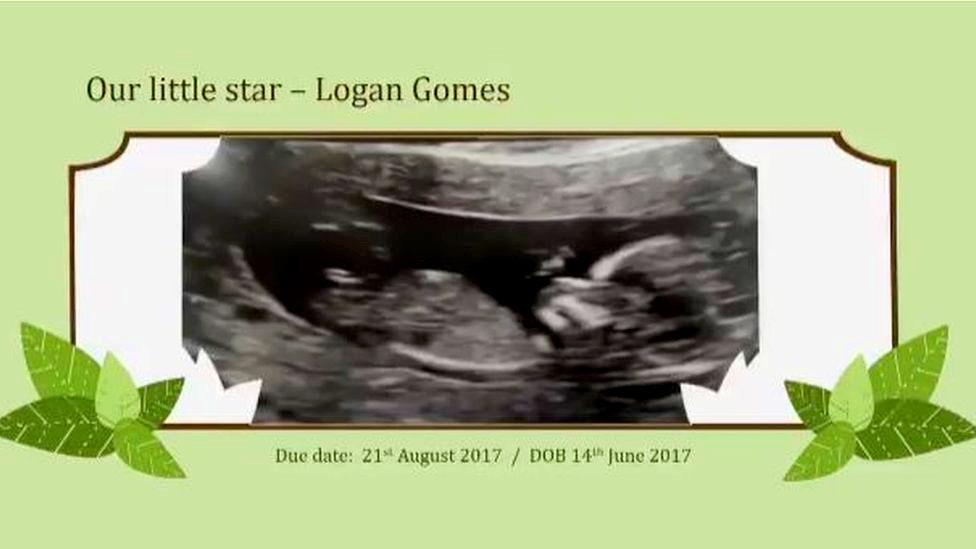
- Published21 May 2018
